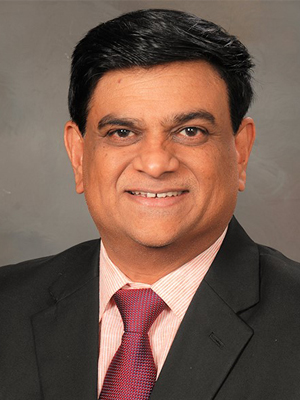
A continuing renewal grant of the Industry-University Cooperative Research Centers program from the National Science Foundation (NSF) will allow researchers to continue working toward extending the life-cycle of civil infrastructure, resulting in less maintenance and lower costs to taxpayers.
The NSF awarded a five-year $250,000 grant to the Center for the Integration of Composites into Infrastructure (CICI), led by principal investigator Dr. Anand Puppala, professor and the A.P. Florence Wiley Chair in the Zachry Department of Civil and Environmental Engineering at Texas A&M University. The center has university partnerships with other centers housed at West Virginia University, the University of Miami and North Carolina State University, that are focusing on composite materials and their applications in structural engineering related topics.
“We received funding for the center for the final phase (phase III) for five years, and we anticipate to recruit more industries and partners to work with us on the center’s research activities, student recruitment and training, as well as developing new patents. We also anticipate more collaborative studies with our research consortium partners,” Puppala said.
Researchers for the center will use the grant, along with annual membership funds (anticipated to be more than $1 million dollars) from several agencies and industries, to examine ways to create stronger, more sustainable infrastructure, such as foundations, retaining walls, slopes and related structures. Dr. Surya S.C. Congress and Dr. Sayantan Chakraborty, co-principal investigators and postdoctoral researchers, will work with Puppala on the center’s research, recruitment and outreach activities. Faculty working in similar fields will also be recruited to work with specific research studies.
The Texas A&M CICI site has a strong research background in soil-structure interactions, and will work with the partner universities on materials, structural retrofits and offshore soil treatment, including geosynthetics (synthetic materials used to stabilize terrain).
Specifically, Puppala and his partners will continue to examine the utilization of composites, including these geosynthetics, polymeric materials including geopolymers, and other geocomposites in subsurface infrastructure. This infrastructure could include pavements, runways, embankments, retaining structures, earth dams and levees. Both life-cycle cost analysis and sustainable utilization of composites will be addressed.
All CICI-related work will be performed at the Center for Infrastructure Renewal (CIR) geotechnical laboratories, specifically soils and unbound materials labs. Puppala serves as associate director of CIR facilities at the RELLIS Campus in Bryan.